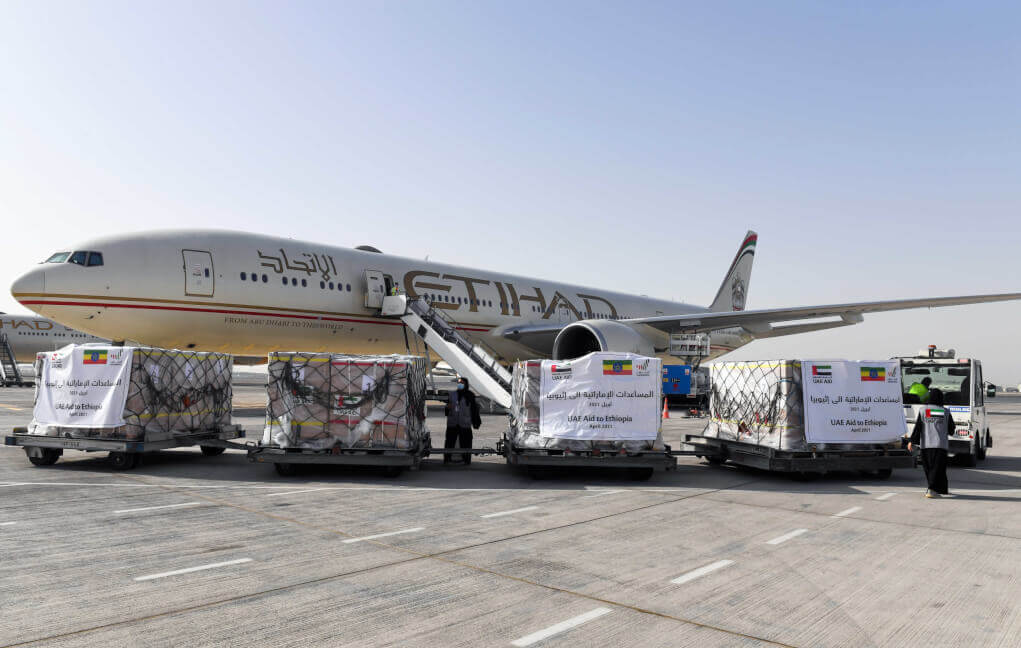On Thursday, the UAE sent an aid plane containing 46 tons of food and health supplies to Ethiopia, as part of the support for the humanitarian situation in the Tigray region.
The UAE ambassador to Ethiopia, Mohammed Salem Al-Rashdi, said that the UAE has “strong relations” with Ethiopia, and “this aid comes within the framework of the directives of the country’s wise leadership to provide humanitarian and development assistance to brotherly and friendly peoples.”
Al-Rashidi added, in a statement carried by the official Emirates News Agency , “The UAE is working to support the humanitarian and development situation in the Tigray region of Ethiopia, due to the region’s suffering from war conditions and the spread of the” Covid-19 “virus.
Al-Rashidi affirmed the UAE’s commitment to a humanitarian approach that supports emergency relief in countries that need it, and the UAE’s stand and leadership on the side of the people of Ethiopia and all the peoples of the world to overcome any humanitarian crisis.
The statement pointed out that “the UAE pledged to provide $ 185 million to support displaced people on the Ethiopian-Sudanese border in cooperation with the World Food Programme and other international organisations.”
“The UAE also worked to fly 6 aircraft that carried nearly 300 tons of relief materials through the International Humanitarian City in Dubai and its international organization partners,” the statement continued.
The aid came a day after a statement issued by the UAE Ministry of Foreign Affairs, expressing its keenness to continue negotiations between Egypt, Sudan, and Ethiopia to solve the Grand Ethiopian Renaissance Dam issue .
The statement said, “The UAE affirmed its great interest and keenness to continue the constructive diplomatic dialogue and fruitful negotiations to overcome any differences over the Renaissance Dam between the three countries.”
Ethiopia had confirmed that it would start the second phase of filling the dam after completing the first phase last year, regardless of whether or not an agreement was reached with Sudan and Egypt.
The Ethiopian crisis comes with the downstream countries (Egypt and Sudan), amid intense conflicts and internal fighting, which resulted in casualties and injuries, as well as the displacement of hundreds of Ethiopians to Sudan.
In September 2020, the tension between the Ethiopian Prime Minister, Abiy Ahmed, and the Tigray People’s Liberation Front, reached its climax after the holding of local elections in Tigray that Addis Ababa deemed “illegal “.
In early November, the Ethiopian government sent the federal army to impose “legitimate institutions” in place of the TPLF (Tigray People’s Liberation Front). Abyei justified this by attacks that targeted two Federal Army bases in Tigray and attributed them to the front, which it denied responsibility.












